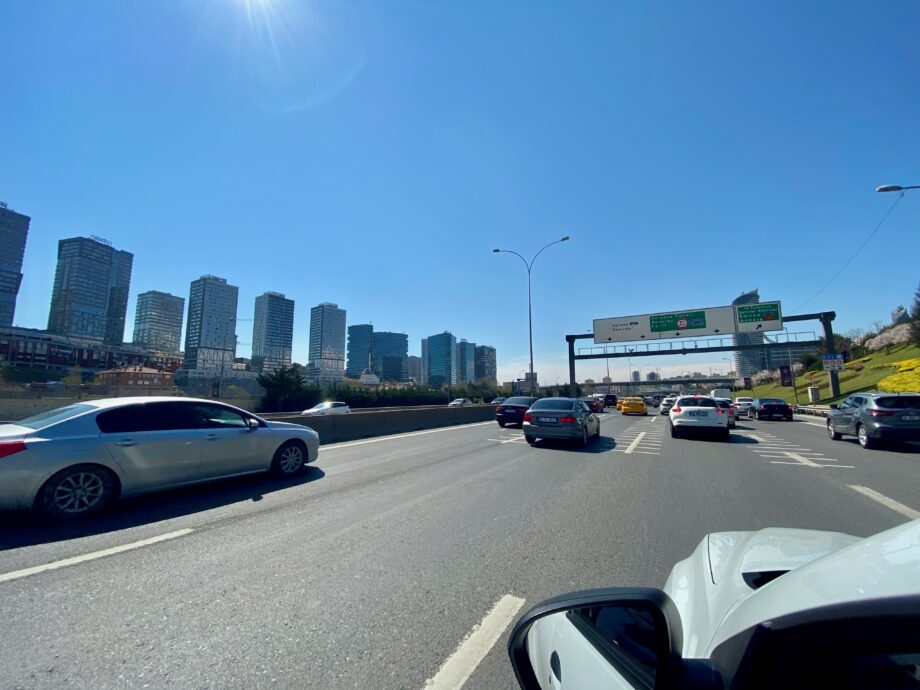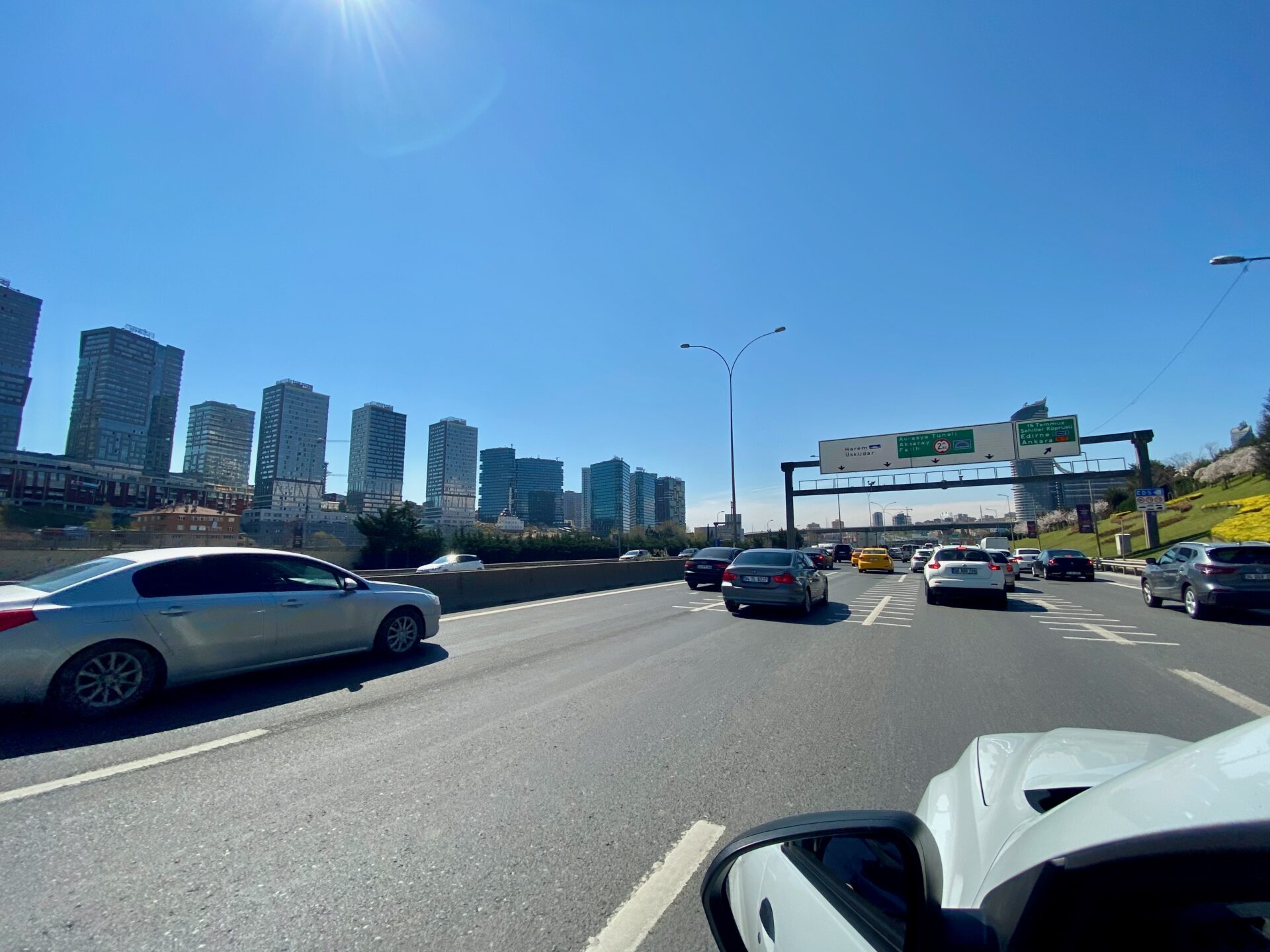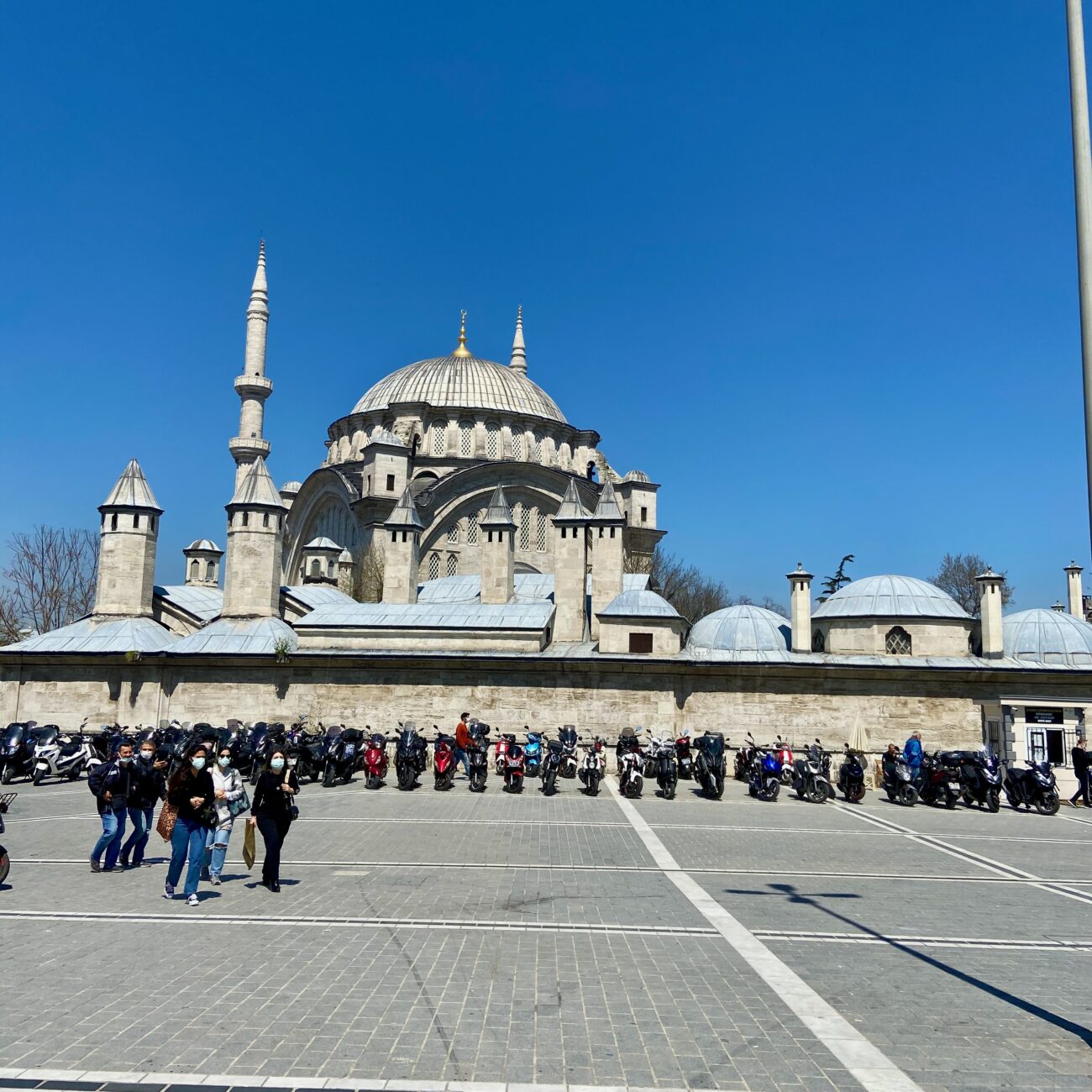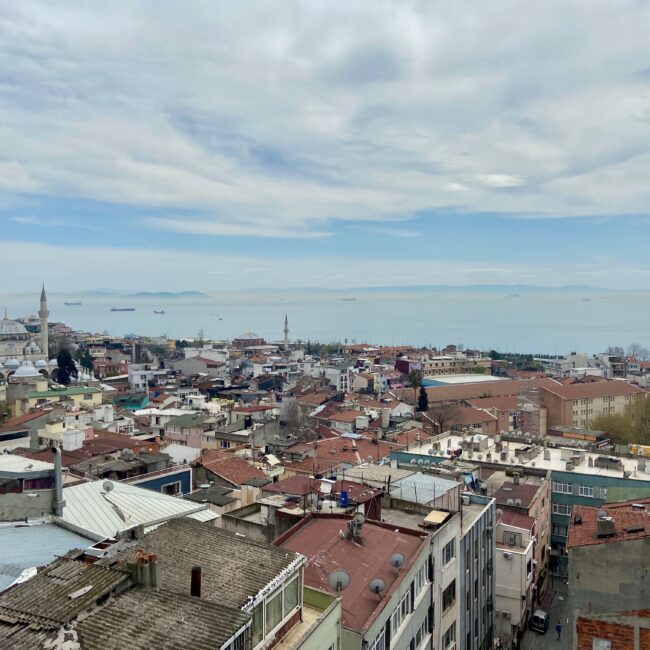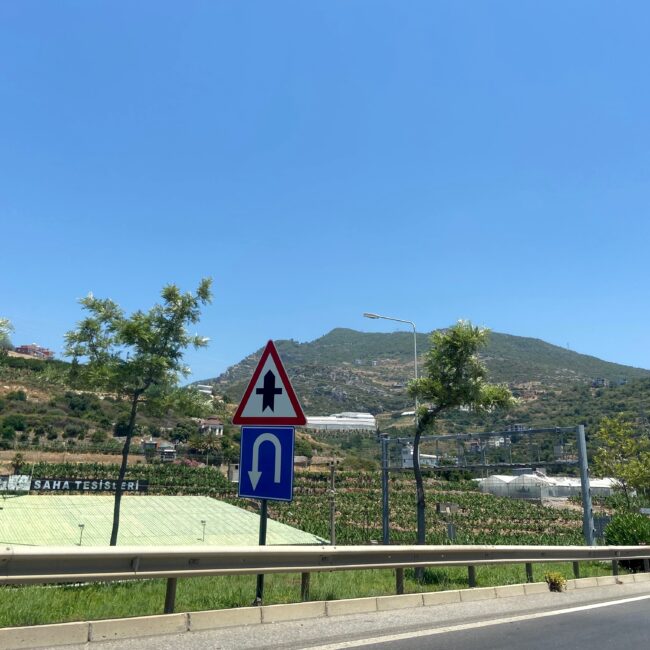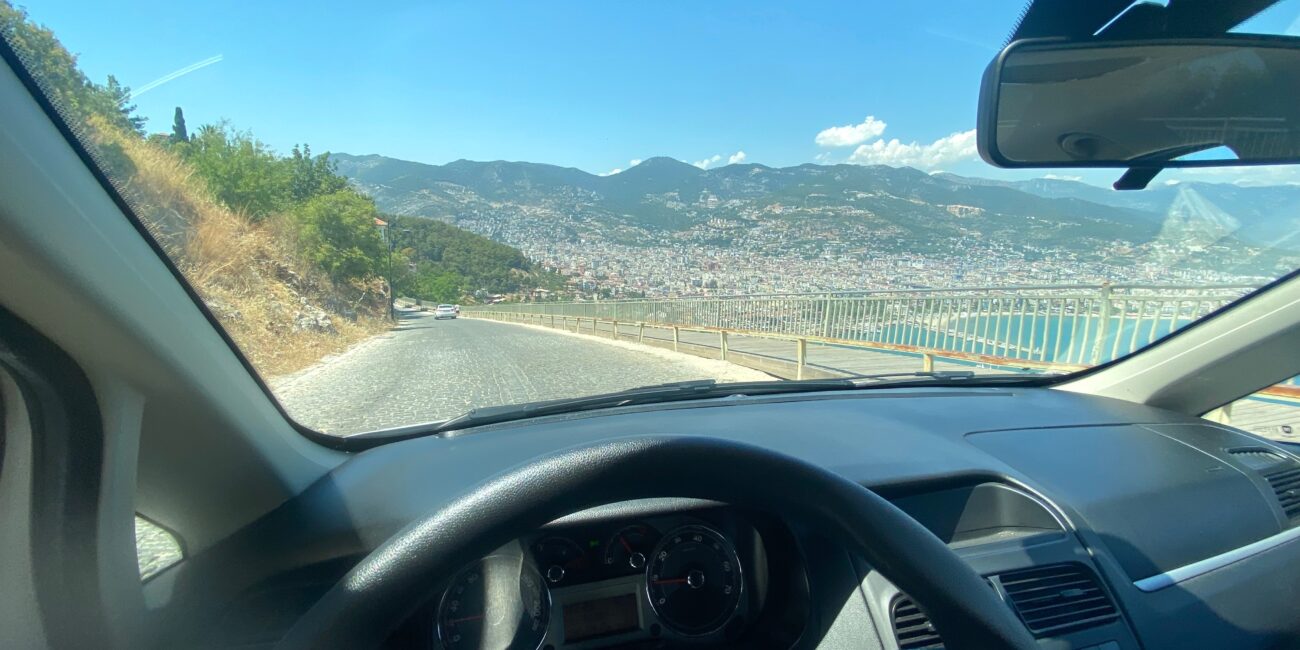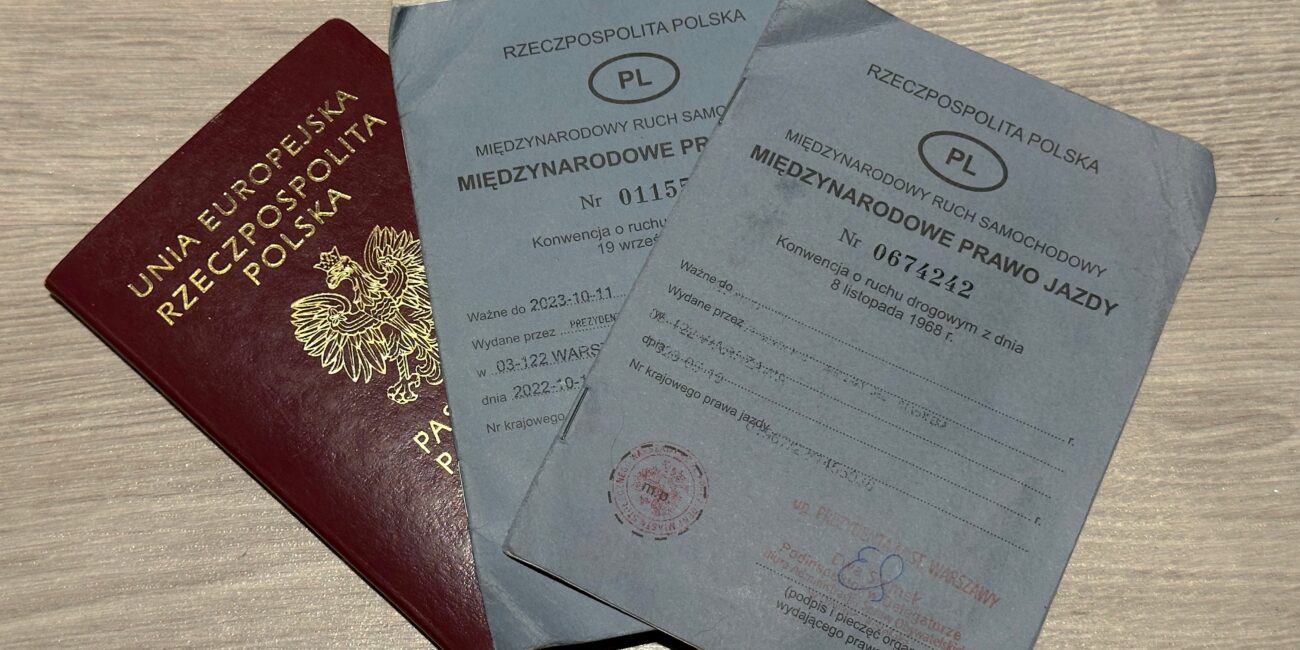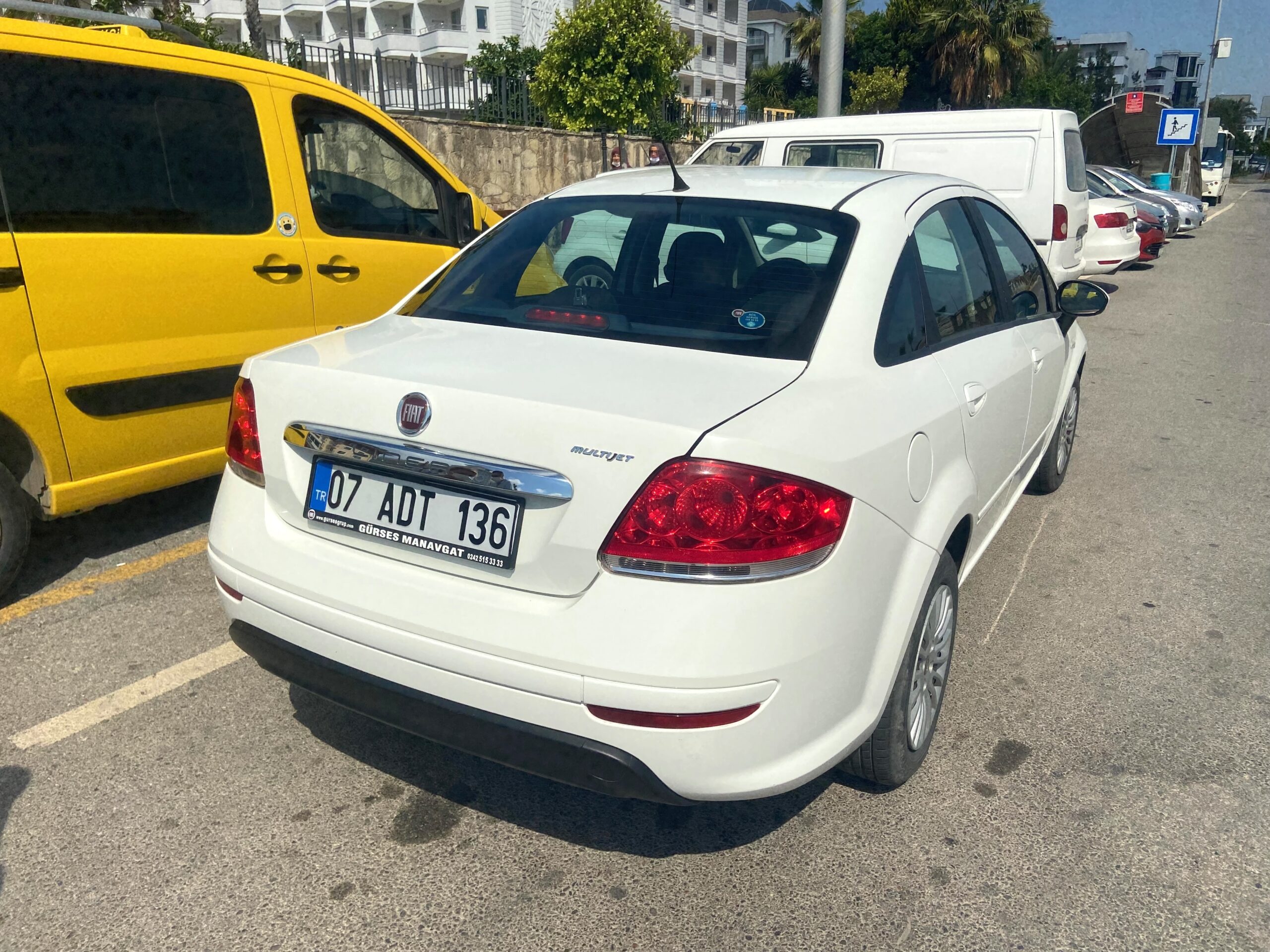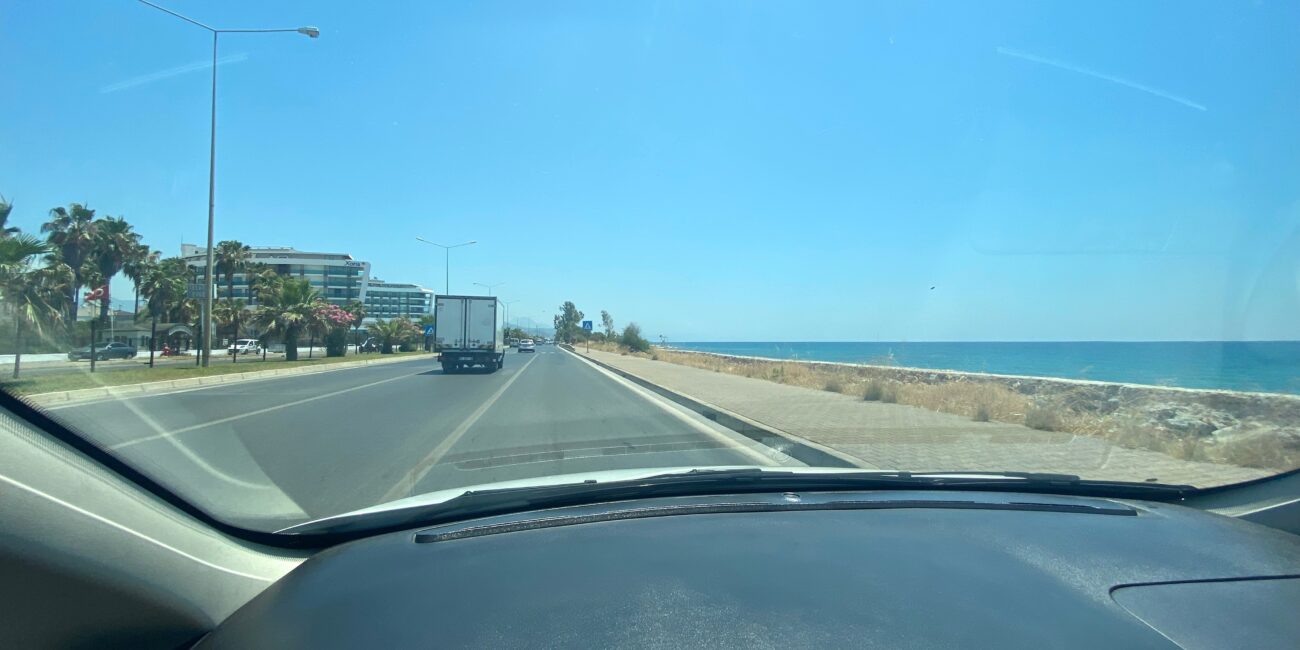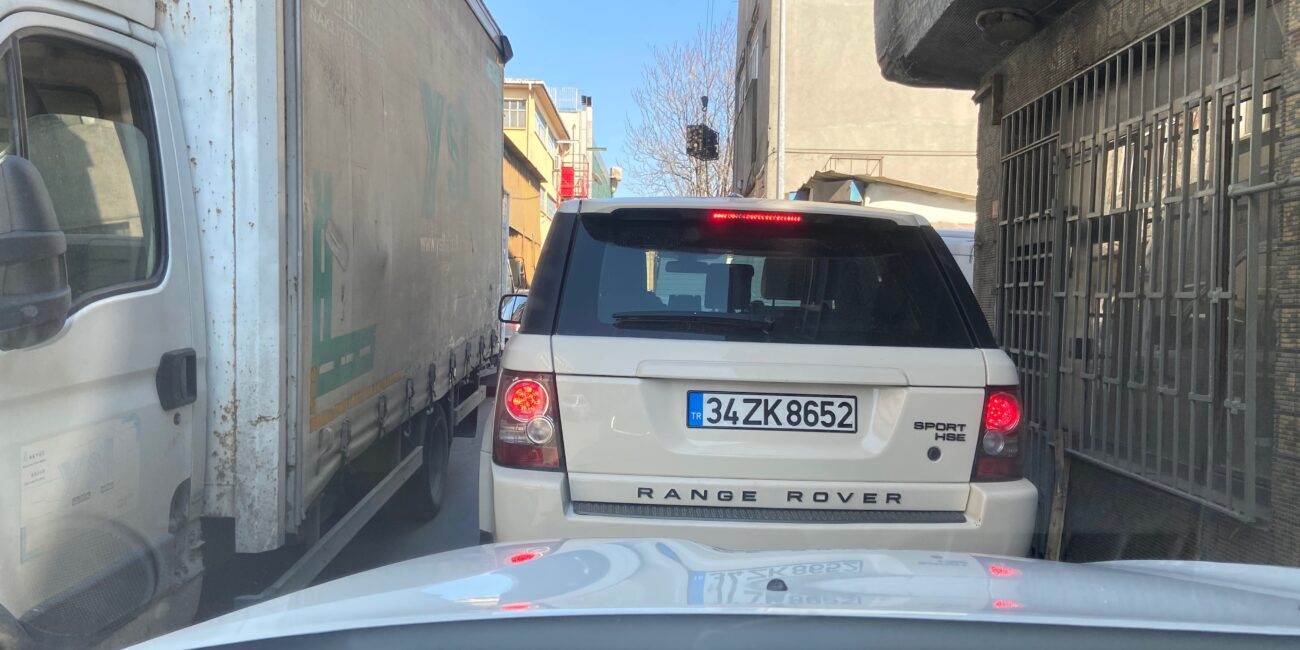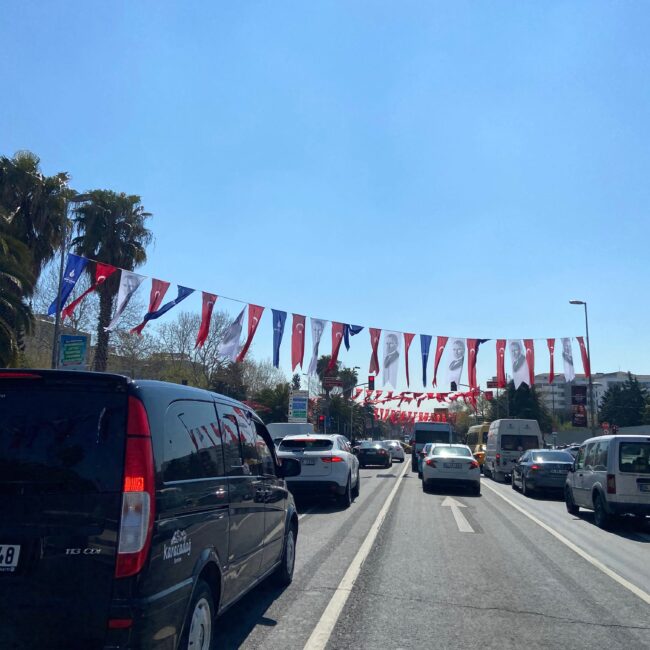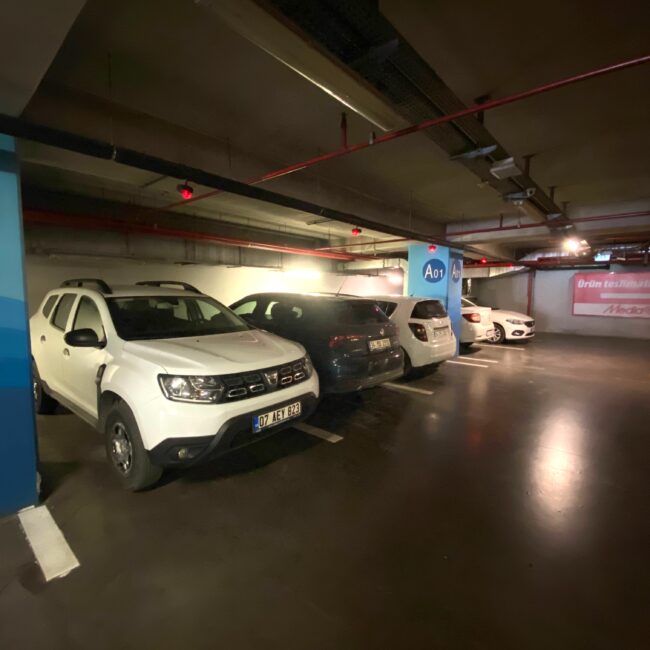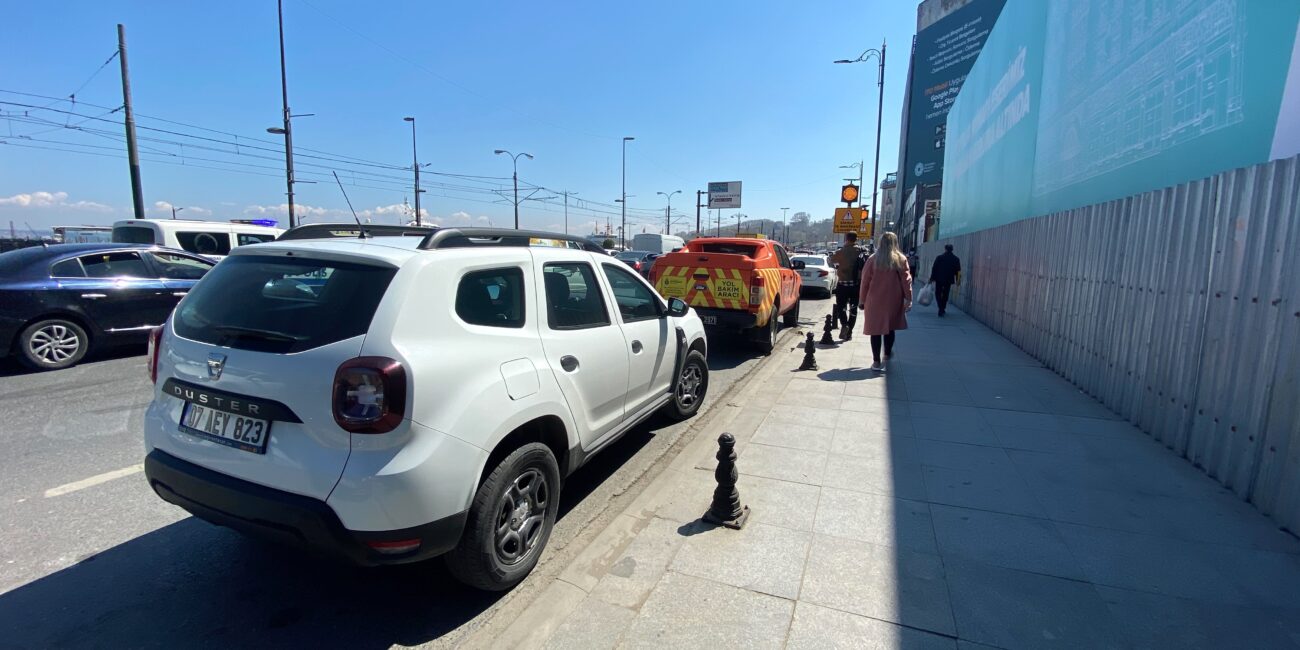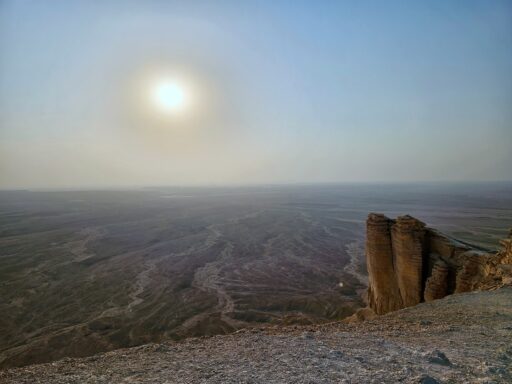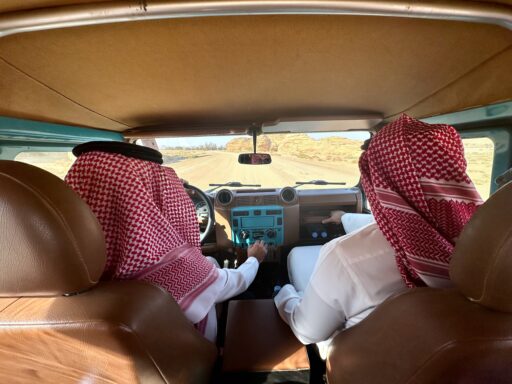This post is also available in:
Polski
Hello! 👋
Renting a car in Turkey can be a fantastic way to explore the country at your own pace. However, if you’ve ever tried to find a car in decent condition, you know it’s not always smooth sailing. Have you ever picked up a vehicle that looked like it just returned from the Dakar Rally? Or discovered scratches and damage that weren’t noted in the report?
In this article, we’ll share our experiences and tried-and-true tips to help you rent a car that’s, well… reasonably undamaged and avoid unpleasant surprises. 🚗
What was it like traveling to Turkey?
Trips to Turkey have always been an opportunity for us to discover something new. In November 2023, we spent a few days here on our way back from Vietnam. It wasn’t our first visit – we had both already explored the Turkish Riviera, and I also made a stop in Istanbul in 2021 during the pandemic. Jadzia visited Pamukkale back in 2019. Apart from Pamukkale, every trip to Turkey involved renting a car, which helped us develop habits that we now consider essential to avoid unpleasant surprises. 😉
Requirements for traveling in the country
Traveling to Turkey has become easier for Polish citizens thanks to changes in entry regulations. Since April 19, 2022, Poles can enter Turkey for tourism or transit purposes with a valid ID card, without needing a passport. This privilege applies to stays of up to 90 days within a 180-day period. In addition to an ID card, we will also be useful:
- Driver’s License: Polish citizens can drive in Turkey using their Polish driver’s license. However, it is recommended to carry an International Driving Permit, especially if you’re planning a longer stay or traveling in less touristy areas. While it’s not always required, it can make interactions with local authorities much smoother.
- Credit Card: In Turkey, car rental companies typically require a credit card to secure the rental. They often place a deposit hold on the card, which is released once the vehicle is returned in good condition. Debit cards are less commonly accepted, so it’s important to ensure you have a credit card with a sufficient limit.
- The minimum age for drivers is usually 21, and importantly, the driver must have held a valid license for at least one year. For more luxurious models, rental companies may require the driver to be at least 25 years old. If you’re unsure, check the specific requirements of the rental company you choose.
International Driving License
For Polish citizens, obtaining an IDP (International Driving Permit) is relatively simple – you just need to submit an application at the appropriate communication department based on your place of residence, such as the city hall or county office.
You can find application forms on the official websites of the respective offices, and the process usually requires an in-person visit. If you feel a bit lost, we invite you to check out our dedicated post about the IDP. There, you’ll find a detailed guide based on our personal experiences and official information.
👉 Important: Only get your IDP made at official places to make sure the document meets international requirements – whether you’re a citizen of Poland or another country. 😊
👉 Check your country’s local regulations and make sure you have both a valid national driver’s license and IDP to legally rent a car and drive. For more information: internationaldrivingpermit.org
Where to rent a car in Turkey?
Renting a car in Turkey is a fairly straightforward process, though it’s worth knowing what to look out for to avoid any surprises. If you’re planning a trip, carefully choosing the rental company and pick-up location can save you a lot of time and, sometimes, money.
Airports are the most popular places to rent a car—and for good reason. It’s a convenient option, especially if you’re arriving for just a few days and plan to hit the road right away. In major cities like Istanbul, Antalya, or Izmir, airport rental companies offer a wide range of vehicles—from small city cars to larger SUVs that are better suited for long trips or mountainous regions. Renting at the airport also allows for a quick start to your journey without the hassle of arranging additional transportation to your hotel.
Tourist areas
If you’re planning to stay in tourist destinations, especially along the Turkish Riviera, it’s worth knowing that many local rental companies offer the convenience of delivering a car directly to your hotel. This is particularly handy for those who prefer to rest after arriving before heading out to explore. However, keep in mind that in such areas, rental companies often charge in euros rather than Turkish lira. Unfortunately, this can make rentals a bit more expensive, especially for shorter periods.
For those looking to compare prices and find the best deal, local car rental platforms can be a great option. However, it’s crucial to read the terms and conditions carefully, as hidden fees (such as charges for extra kilometers or insurance) can sometimes significantly increase the final cost.
Practical tip: If you’re planning a route through different regions of Turkey, check whether the rental company allows you to return the car at a different location than where you picked it up. This can be a very convenient option, especially if you’re starting your journey in Antalya and finishing in Istanbul.
What costs are involved?
The cost of renting a car in Turkey depends on many factors, making it hard to pinpoint a single price. Turkey is a vast country, and prices can vary significantly depending on the region, season, and type of vehicle.
Generally, on the Turkish Riviera, where tourism thrives year-round, rentals tend to be more expensive—expect to pay around 150 to 300 PLN per day for a small car. In larger cities like Istanbul or Ankara, prices are often lower, starting at approximately 80–120 PLN per day for a basic model. In less popular regions, especially off-season, costs can be even more budget-friendly.
Additional charges
- Insurance: Basic insurance is usually included in the rental price, but it’s worth considering additional policies, such as waiving the deductible (CDW), to minimize costs in the event of potential damage. It’s worth it, but you don’t have to – this is explained later in the text.
- Additional Driver: If you plan for more than one person to drive the car, the rental company might charge an extra fee for each additional driver.
- Young Driver: Drivers under the age of 25 may incur an additional fee.
- Fuel Policy: Many car rental companies require the vehicle to be returned with a full tank. Failing to do so may result in a surcharge for the missing fuel.
- Accessories: Renting GPS, child seats, or other equipment involves additional costs.
- Airport fees: airport rentals can come with additional administrative fees. For the most part, our bookings already included potential airport fees in the rental price, and renting a car in the city can be more expensive than at the airport.
Fuel
In Turkey, various types of fuel are available, including unleaded gasoline (95 and 98 octane), diesel, and LPG (autogas). Fuel prices in Turkey fluctuate frequently and can vary depending on the region and exchange rate. As of early January 2025, the average fuel prices were as follows:
- Unleaded 95 gasoline: about 45.30 TRY per liter
- Diesel: about 44.93 TRY per liter
- LPG (autogas): about 26.12 TRY per liter
Road tolls in Istanbul
In Istanbul, a toll system is in place for the Bosphorus bridges, the Avrasya Tunnel, and certain highways. These tolls are collected electronically using the HGS (Hızlı Geçiş Sistemi) system.
How does it work?
All road tolls in Istanbul are collected electronically via the HGS system. To use toll roads, bridges, and tunnels, your vehicle must have an HGS sticker placed on the windshield. These stickers are available at PTT post offices, highway service stations, and select gas stations. Toll charges are automatically deducted from the account linked to the sticker as you pass through checkpoints.
How much does it cost?
Bridges over the Bosporus
There are three main bridges connecting the European and Asian parts of the city:
- July 15 Martyrs’ Bridge (Boğaziçi Köprüsü)
- Fatih Sultan Mehmet Bridge
- Yavuz Sultan Selim Bridge
As of 2023, tolls on these bridges are charged in both directions. Example rates for passenger cars are:
- The 15 July Martyrs Bridge and the Fatih Sultan Mehmet Bridge: approximately 8.50 TRY.
- The Yavuz Sultan Selim Bridge: approximately 20.00 TRY.
Avrasya Tunnel (Eurasia)
The Bosphorus Tunnel, connecting the European and Asian sides of Istanbul, has a toll of approximately 53.00 TRY for passenger cars.
Insurance
In most cases, basic insurance (CDW – Collision Damage Waiver) is already included in the car rental price in Turkey. It covers repair costs in the event of a collision, although there is often a deductible—an amount the driver is responsible for paying.
You can extend your coverage by purchasing additional insurance when booking online or directly at the rental office. However, keep in mind that companies sometimes try to “encourage” you to buy extra policies, which may not always be necessary.
If you have travel insurance, a credit card with coverage, or a travel policy that includes car rentals, additional insurance may be unnecessary. It’s worth checking the details of your coverage to avoid unnecessary expenses.
Travel insurance
When planning a trip, especially outside the European Union, it is a good idea to make sure you have adequate travel insurance. Before choosing a policy, be sure to check the recommendations of the Ministry of Foreign Affairs for the regions you plan to visit. Why is this important? In some cases, if the MFA advises against traveling to a particular area, your insurance might not cover incidents that occur in that region.
Make sure to carefully read the General Terms and Conditions of the Insurance (GTC) – this is where you’ll find detailed information about the coverage, including the risks and territories covered by the policy. Travel insurance is not just about health protection; it also provides assistance in cases of car rental issues or potential legal problems abroad.
Road rules and regulations in Turkey
When planning a road trip in Turkey, it’s essential to familiarize yourself with local traffic regulations to ensure your safety and that of others, as well as to avoid unpleasant surprises. Here are the key rules to follow on Turkish roads:
Speed limits
- Built-up area: 50 km/h
- Outside built-up areas: 90 km/h
- Expressways: 110 km/h
- Highways: 120 km/h
Seat Belts: Wearing seat belts is mandatory for both the driver and all passengers, regardless of whether they are seated in the front or the back of the vehicle.
Children in the Car: Children under the age of 12 are allowed to travel only in the back seats of the vehicle. It is recommended to use appropriate car seats or boosters suitable for the child’s age and weight.
Use of Lights: Daytime running lights are not mandatory unless weather conditions reduce visibility or when driving through tunnels. After dusk, the use of dipped headlights is required.
Alcohol and Driving: The legal blood alcohol limit for drivers is 0.5‰. Exceeding this limit can result in hefty fines or even the loss of your driver’s license.
Reality on the road
Driving on Turkish roads is truly an adventure full of surprises. Outside of Istanbul, in other regions of the country, you’ll also encounter unique driving behaviors. For instance, in smaller towns and rural areas, pedestrians often cross the road at unmarked spots, and drivers may overtake on the right or fail to signal before turning.
An interesting fact about Turkey is that, despite the traffic rules, the horn is used frequently—not just as a warning but also as a form of communication between drivers. In some parts of the country, especially on narrow mountain roads, drivers honk before every turn to signal their presence to oncoming vehicles.
It’s also worth mentioning parking. In city centers, finding a legal parking spot can be challenging, which is why some drivers leave their cars in unauthorized areas, hoping to avoid enforcement. However, such practices can lead to fines or even having your vehicle towed.
While traveling in Turkey, you might notice that on expressways and highways, despite clearly marked lanes, drivers often drive in the middle or straddle two lanes at once. This can be surprising for tourists used to more orderly traffic behavior.
How to avoid extra fees and hidden costs?
To avoid unpleasant surprises when renting a car, it is worth paying attention to several key aspects:
- Online booking: make your reservation in advance online. This allows you to compare prices and get a thorough understanding of the rental terms, avoiding higher fees on the spot.
- Fuel policy: Always choose the “full to full” option. Returning with an incomplete tank incurs additional refueling fees, often much higher than the standard price at the station.
- Insurance deductibles: check the amount of the deductible that applies to basic insurance and whether additional insurance is really necessary. Beware of pressure from the rental company to purchase extended insurance if you have alternative coverage from other sources (such as a credit card).
- Return Conditions: Make sure you understand the rules for returning the vehicle, including the times and place of return. Minor delays may incur charges for an additional day of rental.
- Liability for damages: Make sure what damages are covered by insurance and what costs you may incur in the event of an accident. Some rental companies may try to shift liability to you for minor damages that are not your fault.
- Cancellation and change of reservation: Check the terms and conditions for cancellations and changes to reservations. In some cases, changes made close to the rental date may incur additional charges.
- Chargeback: If you encounter wrongful charges, it is worth remembering to use the chargeback procedure on your payment card. You can report the unauthorized transaction to the bank, which will process the chargeback.
Document the receipt and return of the car
To avoid unforeseen charges:
- Inspect the vehicle: Before taking delivery, inspect the car carefully, writing down any existing damage in a report.
- Take pictures: Document the exterior and interior condition of the car upon receipt and return, including fuel levels. Check for cigarette burns on the upholstery.
- Confirmation of return: Ask the rental company employee to confirm in writing that the car has been returned without new damage.
- Keep documents: Keep contracts, confirmations and photos as evidence if disputes arise.
Refueling the car
At most gas stations in Turkey, attendants handle the fueling process—self-service is uncommon. When you pull up to the pump, an attendant will approach your vehicle, ask for your preferred type and amount of fuel, and then fill the tank for you.
After refueling, the standard practice is to go to the station’s cashier, provide the pump number and your vehicle’s license plate, and complete the payment. Additionally, many stations offer a complimentary car wash after refueling, which can be a nice perk.

